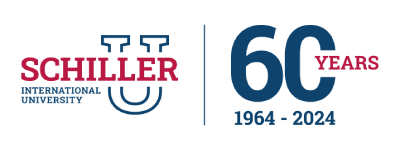If you want a global degree with strong academic rigor and international exposure, but also have some control over time and cost, then Germany checks a lot of those boxes. The country has become a hub for future-focused education, attracting over 400,000 international students, as reported by Deutscher Akademischer Austauschdienst (DAAD), the German Academic Exchange Service.
Many universities in Germany offer industry-relevant English-taught programs with smaller class sizes and practical industry connections. When you add one-year master’s degree options like those offered by Schiller International University, you can fast-track your postgraduate journey. It will help you save time, optimize costs, and study in a multicultural environment.
Understanding the Cost of a Master’s Degree in Germany
Before you pack your bags for Germany, it is important to understand where your investment is actually going. While studying for a master’s here can be an incredible experience, academically and professionally, it also comes with real financial planning. Private universities in Germany typically charge tuition for all students, whether domestic or international. The total cost of a master's program varies widely depending on what and where you study.
- Tuition: Most private institutions charge between €10,000 and €20,000 per year, depending on the course and the university. Programs in business, finance, MBA, and data science tend to cost more. STEM-adjacent or technical programs also lean higher than the general humanities or social sciences.
- Reputation and Accreditation: Schools with strong brand recognition, international accreditations such as the Accrediting Commission of Career Schools and Colleges (ACCSC), or specialized faculty/research facilities tend to charge premium fees.
- Program Type and Delivery: The cost of a postgraduate program also depends on whether it is a specialized MBA or an MSc degree with classes delivered on-campus, blended/hybrid, or via online live/recorded classes.
- City: Major hubs like Munich, Frankfurt, and Berlin are vibrant but also among the most expensive cities to live in. Smaller, student-friendly cities such as Heidelberg, Leipzig, or Mannheim offer a more balanced cost of living with an equally rich cultural and academic life.
- Duration: A one-year master’s can significantly reduce your overall expenses compared to a two-year program. One year equals less tuition, lower living costs, and a faster entry into the job market.
- Other Factors: You must also meet visa-related financial requirements, such as the blocked account (around €11,904 per year), health insurance (€120-€130 per month), semester or administrative fees, transportation passes, and personal expenses.
- Scholarships/Financial Aid: Many universities in Germany (including Schiller) offer merit, need-based, or early application scholarships, which can reduce your net tuition by as much as 50%.
In short, your total cost will depend on your lifestyle, city, and program length. With smart planning, you can manage your expenses, especially if you choose a university that helps you make the most of your time and investment.
Tuition Fees Breakdown for 2026
Tuition fees for master’s programs in Germany vary widely across institutions, but there are a few clear trends.
- General Master’s Programs (non-MBA): €8,000 to €20,000 per year. It is common across international business, hospitality, and general management degrees.
- STEM, Data Science, and Engineering: €15,000 to €25,000 per year, which is slightly higher due to laboratory facilities, technical resources, and smaller cohorts.
- MBA and Premium Business Programs: €25,000 to €40,000+ per year, especially for globally accredited MBAs or those based in major cities like Frankfurt or Munich.
Master’s degree programs at Schiller International University
Schiller’s tuition fees for 2026 reflect the mid-to-upper range, with a significant scholarship flexibility:
*Note: Schiller offers merit- and need-based scholarships that can reduce total tuition by up to 50%. Scholarship eligibility and terms apply.
|
Program |
Duration |
Tuition (Standard) |
With Scholarship (up to 50%)* |
|
12 months |
€16,560/yr |
€8,280/yr |
|
|
12 months |
€16,560/yr |
€8,280/yr |
|
|
15 months |
€20,700/yr |
€10,350/yr |
|
|
12 months |
€16,500/yr |
€8,250/yr |
|
|
12 months |
€16,560/yr |
€8,280/yr |
|
|
12 months |
€16,500/yr |
€8,250/yr |
|
|
12 months |
€16,560/yr |
€8,280/yr |
Living Costs for Studying in Germany
Tuition, albeit major, is just one part of the total cost of studying in Germany. While studying here, your living expenses, from rent to groceries to health insurance, will make up a significant portion of your budget. Understanding these costs upfront will help you plan realistically and avoid surprises.
|
Category |
Estimated Monthly Cost (€) |
|
Housing |
770 |
|
Food |
270 |
|
Transportation |
35-82 |
|
Telephone |
40 |
|
Miscellaneous personal expenses |
220 |
|
Books, course materials, supplies and equipment |
35 |
|
Total |
€1,417 |
Budget Tips for International Students
Studying for your master’s in Germany does not have to feel like walking a financial tightrope. With some planning and a few smart choices, you can live well, learn deeply, and still keep your budget under control without missing out on the experience. You can:
- Choose duration and credit load smartly: Enrolling in a one-year program can save you an entire year of rent, insurance, and daily costs. Schiller’s one-year master’s options make this especially feasible.
- Apply for scholarships early: Do not wait until the last minute. Apply for scholarships as soon as applications open. Schiller offers up to 50% tuition scholarships for merit, need, or specific regions, affecting overall affordability. While DAAD or other external grants may not fully cover private tuition, they can still provide monthly stipends or partial support.
- Live in shared flats or student dorms: Housing is one of your biggest expenses, and early applications make all the difference. Shared flats (Wohngemeinschaften) or dormitories through Studierendenwerk Heidelberg often cost considerably less than private rentals.
- Cook at home and limit eating out: Groceries from discount chains like Aldi, Lidl, or Penny will stretch your budget much further than frequent takeout. If your university offers a student cafeteria (Mensa), take advantage of it. Most students who cook regularly spend around €150-€180/month on food.
- Use free or discounted transport and student perks: Germany’s student discounts are fantastic, from local transport passes (Semesterticket) to museums, cinemas, and gym memberships. In smaller cities, you might get by bike or foot, without a monthly pass.
- Work part-time or find internships: Non-EU/EEA students can work up to 120 full days or 240 half days per year (around 20 hours/week). Even a part-time role can offset your rent or groceries.
- Pre-plan your initial expenses: The first month is always higher: deposits, visa fees, health insurance setup, and furnishing your room. Plan these separately from your regular budget so you are not caught off guard.
Scholarships and Financial Aid Options
To study in Germany, you can apply for various scholarships without stretching your finances thin. The country and institutions such as Schiller International University offer several forms of support designed to make high-quality education accessible to international students.
DAAD Scholarships (German Academic Exchange Service)
The DAAD remains one of the most prestigious sources of funding for international students in Germany. While DAAD scholarships often focus on public institutions, private university students can still apply for partial stipends or monthly allowances.
Erasmus+ Funding
If your master’s degree includes study mobility across European campuses, Erasmus+ may support part of your costs. Schiller students, for instance, can study at campuses in Germany, Spain, France, and the US, and Erasmus+ grants can be applied to the European study periods.
Schiller International University Scholarships
Schiller believes in rewarding talent and helping students from diverse backgrounds access global education. We offer merit-based, need-based, and region-specific scholarships that can cover up to 50% of tuition costs. You can apply for these when submitting your admission documents. The earlier, the better, since awards are reviewed on a rolling basis.
How Schiller Helps You Optimize Cost and Value
At Schiller International University, 'value' means getting the most out of every euro you invest. From accelerated degree options to the intercampus mobility program and career support, we help you make smarter academic and financial choices.
- One-Year Master’s Programs: Many of Schiller’s master’s degrees, including the MBA, MSc in Global Finance, and MSc in Sustainability Management, are structured to be completed in just 12 months. That means you save an entire year of living expenses and enter the job market faster, without compromising academic depth or accreditation.
- InterCampus Mobility Across Four Countries: With campuses in Heidelberg (Germany), Madrid (Spain), Paris (France), and Tampa (US), you can study in multiple countries under one degree structure with Schiller. It is global exposure without having to reapply or pay separate tuition fees for each country.
- Industry-Integrated Learning: Every master’s at Schiller includes real-world projects, case studies, and career mentoring. This approach reduces the 'payback period' of your education because you gain employable skills while you study.
Studying a master’s degree in Germany in 2026 is certainly an investment. But the total cost becomes much more manageable with smart choices, a shorter duration, more scholarships, lower-cost living, and part-time work. Explore Schiller's Heidelberg campus and the cost of living in the city to balance cost, duration, global mobility, and value.
FAQs
Q1. How much does it cost to study a master’s in Germany in 2026?
Answer: You can expect €12,000 to €40,000+ in tuition for a full master’s program (depending on the institution and discipline). When you add living costs, a blocked account, and initial fees, the total one-year cost could be €35,000-€50,000+ without a scholarship.
Q2. What is the average cost of living for students in Germany?
Answer: In Heidelberg, typical living expenses (rent, food, insurance, transport, etc) are €1,200-€1,400/month. Across Germany, the rate is similar or slightly higher in large cities. The blocked account requirement is €992/month (~€11,904/year).
Q3. Can I work part-time while studying for a master’s in Germany?
Answer: Yes. International students are generally allowed to work up to 120 full-time days or 240 half-time days per year (or approximately 20 hrs/week) without needing a special work permit. Earnings will help you with living costs.
Q4. What scholarships are available for international students pursuing master’s degrees in Germany?
Answer: To pursue a master's degree in Germany, you can apply for scholarships at the university where you will pursue the program. You can also apply for DAAD or Erasmus+ scholarships.

 Request information
Request information









